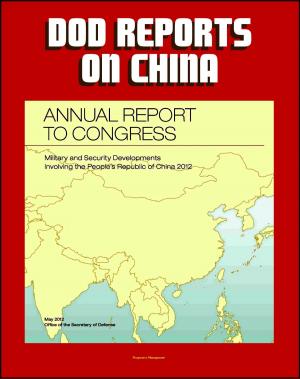Success in Opposite Direction: Strategic Culture and the French Experience in Indochina, the Suez, and Algeria, 1945-1962 - Decolonization After Second World War, First Indochinese War and Vietnam
Nonfiction, History, Military, Vietnam War, Asian, Social & Cultural Studies, Political Science, International| Author: | Progressive Management | ISBN: | 9781370492220 |
| Publisher: | Progressive Management | Publication: | February 22, 2017 |
| Imprint: | Smashwords Edition | Language: | English |
| Author: | Progressive Management |
| ISBN: | 9781370492220 |
| Publisher: | Progressive Management |
| Publication: | February 22, 2017 |
| Imprint: | Smashwords Edition |
| Language: | English |
This excellent report has been professionally converted for accurate flowing-text e-book format reproduction. Decolonization after the Second World War provides many historical examples for the study and examination of the concept of strategic culture. Based upon similarities in strategic culture the United States military can benefit greatly from studying the downfall of the French empire. The US Army cannot underestimate the potential negative implications of an obstinate strategic culture and a lack of institutional learning and adaptability when confronted with changing strategic contexts. An examination of the French experience in Indochina, the Suez, and Algeria illustrates the impact of strategic culture on the conduct of military operations and conflict outcomes thereby better preparing the United States for future wars.
The US Army can learn from these experiences by better understanding how the American culture interprets the world and how it affects other actors within the global system. The US Army with respect to strategic culture has an example which, as Bernard Fall noted, "points the way for the future" in the French experience in Indochina, the Suez, and Algeria from 1945-1962, that in Fall's words "is a signpost which reads, 'Success in Opposite Direction.'"
A military's interpretation of its national strategic culture within the strategic and military context of a situation plays a pivotal role in the development of operational approaches. Despite a persistent, unchanging, and influential strategic culture, the French military was able to learn from their experiences in Indochina and the Suez and develop new doctrine to guide a different operational approach in the Algerian War. Decolonization after the Second World War provides many historical examples for the study and examination of the concept of strategic culture. Based upon similarities in strategic culture the United States (US) military can benefit greatly from studying the downfall of the French empire. The French experiences in Indochina, the Suez, and Algeria are good cases in point to analyze and investigate according to Yitzhak Klein because, "[i]f strategic culture is partly a product of military experience, combat is its greatest educator. A nation with frequent combat experience is likely to fair better in choosing a strategy to fit its doctrine, and operations to execute its strategy, than one whose officers must learn from journals." The connections between culture, security policy, and military action are not, however, a new concept.
This excellent report has been professionally converted for accurate flowing-text e-book format reproduction. Decolonization after the Second World War provides many historical examples for the study and examination of the concept of strategic culture. Based upon similarities in strategic culture the United States military can benefit greatly from studying the downfall of the French empire. The US Army cannot underestimate the potential negative implications of an obstinate strategic culture and a lack of institutional learning and adaptability when confronted with changing strategic contexts. An examination of the French experience in Indochina, the Suez, and Algeria illustrates the impact of strategic culture on the conduct of military operations and conflict outcomes thereby better preparing the United States for future wars.
The US Army can learn from these experiences by better understanding how the American culture interprets the world and how it affects other actors within the global system. The US Army with respect to strategic culture has an example which, as Bernard Fall noted, "points the way for the future" in the French experience in Indochina, the Suez, and Algeria from 1945-1962, that in Fall's words "is a signpost which reads, 'Success in Opposite Direction.'"
A military's interpretation of its national strategic culture within the strategic and military context of a situation plays a pivotal role in the development of operational approaches. Despite a persistent, unchanging, and influential strategic culture, the French military was able to learn from their experiences in Indochina and the Suez and develop new doctrine to guide a different operational approach in the Algerian War. Decolonization after the Second World War provides many historical examples for the study and examination of the concept of strategic culture. Based upon similarities in strategic culture the United States (US) military can benefit greatly from studying the downfall of the French empire. The French experiences in Indochina, the Suez, and Algeria are good cases in point to analyze and investigate according to Yitzhak Klein because, "[i]f strategic culture is partly a product of military experience, combat is its greatest educator. A nation with frequent combat experience is likely to fair better in choosing a strategy to fit its doctrine, and operations to execute its strategy, than one whose officers must learn from journals." The connections between culture, security policy, and military action are not, however, a new concept.















